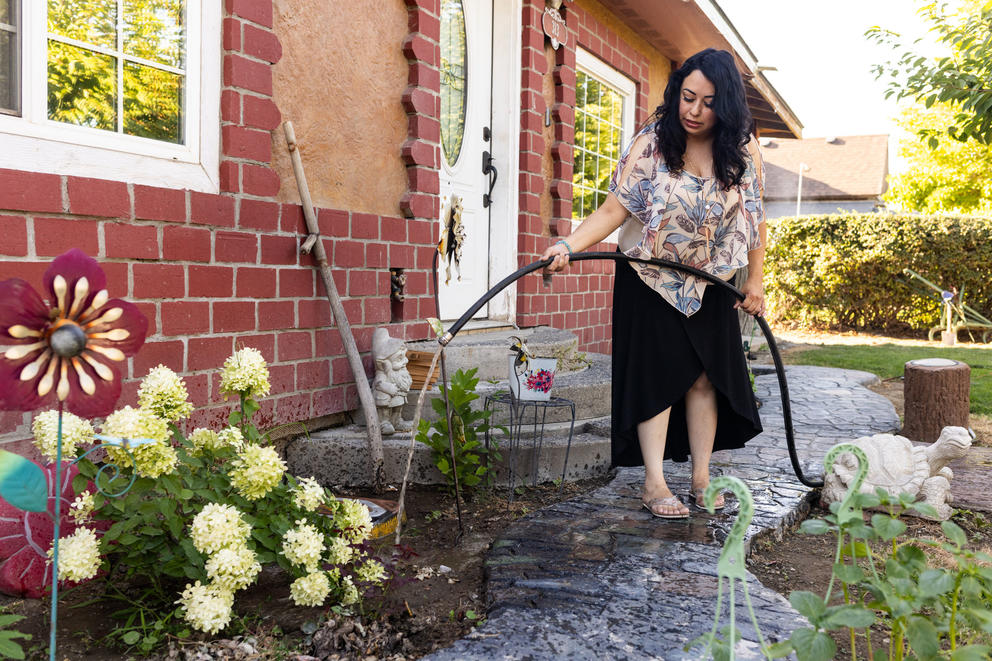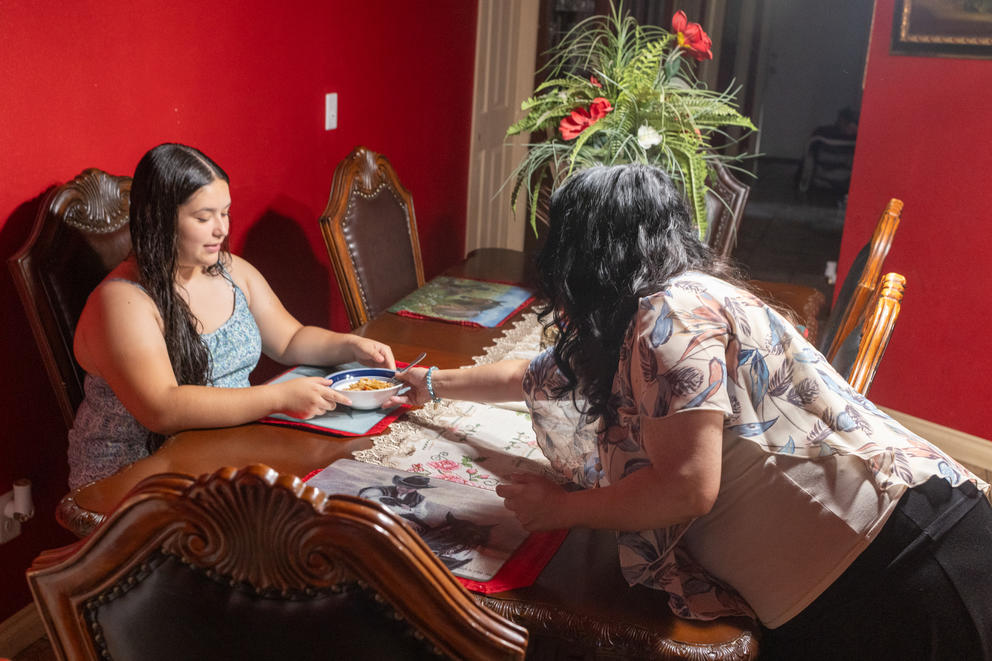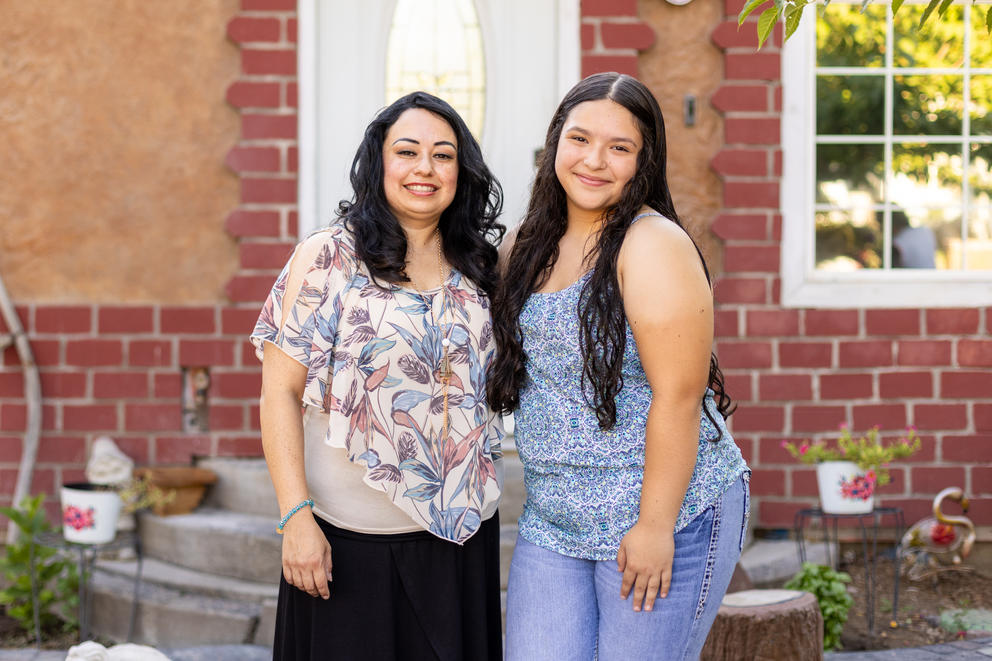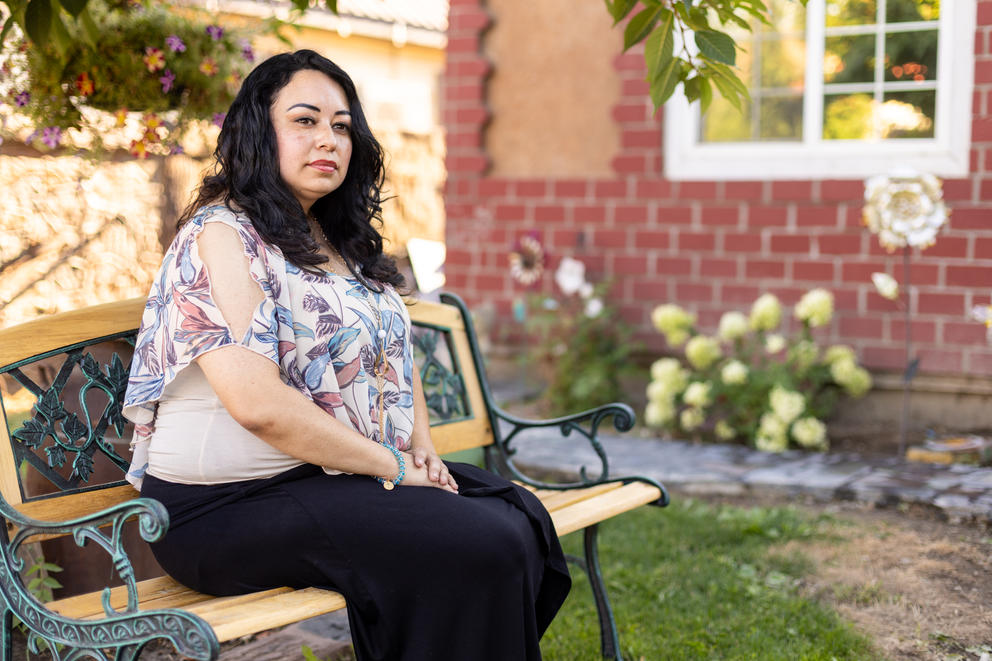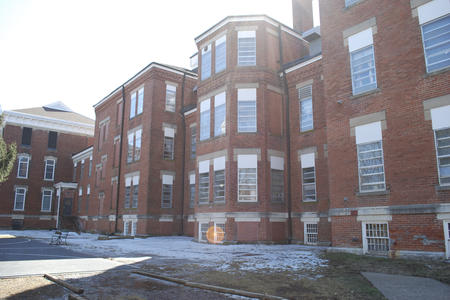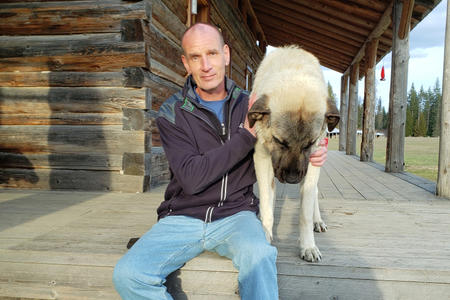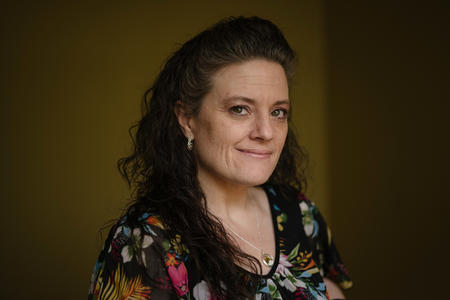Zarate, a 42-year-old Granger, Washington, resident, has always maintained that the allegation was false. By now, two appeals judges have sided with her, independently determining that the 2020 finding that Zarate likely abused her foster daughter was faulty, overturning it. A criminal charge of abuse filed by the Yakima County prosecuting attorney was dropped in 2021.
Despite being cleared of the allegation, Zarate’s ordeal is far from finished, as she continues to struggle with her employment because the abuse charge still comes up on background checks. She said she has wiped out her retirement, gone into debt and has racked up more than $180,000 in attorney fees fighting the abuse allegation.
InvestigateWest (invw.org) is an independent news nonprofit dedicated to investigative journalism in the Pacific Northwest.
“Just because I won doesn’t mean I recovered anything,” Zarate said. “I still have to go through all this turmoil.”
CPS investigations of abuse or neglect allegations are high-stakes, often difficult processes — mishandling one could also leave a child in a dangerous household. But Zarate’s experience aligns with a pattern advocates describe of overly punitive treatment of foster parents by the Department of Children, Youth and Families when those caregivers face accusations of abuse, neglect or even lower-level licensing violations.
Department officials including Secretary Ross Hunter — who declined an interview request for this story — have said for years that they planned to address the issues, including in a 2018 report to the Legislature. But as complaints persist, it’s unclear what steps the department has taken to do so.
Even after an allegation is determined to be unfounded, foster parents like Zarate have little recourse to recover the money and time spent fighting the finding. They can file a tort claim with the state’s Department of Enterprise Services, which allows parents who have spent time and money fighting a false allegation investigated by DCYF to seek a payout from the state’s liability insurance fund. But a payout is exceedingly rare: Of the 55 claims filed by foster families in the past three years that centered on abuse allegations against them, none have led to a payment, a spokesperson told InvestigateWest. Zarate recently filed a claim through that process, seeking $9 million.
The stress of frequent investigations and a lack of accountability for improper findings are driving foster parents out of caregiving, said Mary McGauhey, co-president of the Foster Parents Association of Washington State.
“Once you get crosswise with the department, it’s really, really, really difficult to get back to where you want to be,” McGauhey said. “I agree that foster parents should be held to a high standard, but if the person that’s supposed to be directing my care of that child is not held to a high standard, that’s wrong.”
Investigation fallout
Following the allegation against her in 2020, Zarate received a “founded” finding of abuse, meaning the CPS investigator determined that it was more likely than not that it occurred.
The fallout was manifold. Zarate was charged with a count of child abuse by the Yakima County prosecuting attorney, based on an investigation by police and the CPS finding. And in addition to losing her foster license, she was dismissed from her job as a social worker with CPS.
But as evidence was gathered, it became apparent that there were problems in the initial CPS investigation. A pair of sisters who had lived with Zarate at the same time as the accuser told the CPS investigator that they had never witnessed any such behavior from either Zarate or her husband. Meanwhile, the recollections of the accusing child and her sister both shifted a few times, including who was present and how many times the choking allegedly happened.
Zarate also learned that the caseworker had contacted the Yakima County prosecuting attorney repeatedly, more than 20 times in three months, to inquire whether a criminal charge against her was being filed.
To Zarate, it felt vindictive. She felt she was presumed guilty and needed to prove her innocence rather than the opposite.
“They rushed to judgment,” she said. “They didn’t really investigate it well.”
Concerned about inconsistencies in the investigation, Zarate reached out to the Children and Family Ombuds Office for help. After monitoring the investigation for several months, however, the office found no policy or procedural violations.
As Zarate continued through her appeals, the judges presiding over her case flagged issues that led them to reverse the finding. A review judge with the DCYF Board of Appeals noted in the final ruling in June 2022 that hearsay evidence was the main basis for the original finding, and that the girl who accused Zarate also went on to accuse her next foster parent of abuse, a report that was also later proved false.
The burden of proof required to justify a “founded” finding is lower than the “beyond a reasonable doubt” standard used in criminal proceedings — fostering children, after all, is a responsibility and not a right. But a finding of abuse or neglect can have an effect similar to a criminal charge for a parent or foster parent, especially those who work in any capacity with children.
Patrick Dowd, director of the ombuds office, said the appeals process that Zarate used serves as the safeguard against improper findings. But he acknowledged that the route is costly, both in time and money.
“For the department, it really has no adverse impact,” Dowd said. “[But] for someone who has lost their license to provide child care, or a parent who works with children or vulnerable adults, who is now prohibited from working in a school, or a hospital, it has real-life consequences.”
Data on how often findings are overturned by administrators, administrative law judges or the board of appeals could potentially shed light on common problems with investigations, Dowd said. However, DCYF doesn’t record such data, said Jason Wettstein, DCYF communications director.
“Each investigation is different, and investigations are reviewed through supervisory channels as well as … external processes,” Wettstein said. “Although valuable, the information is not readily obtainable.”
Though Zarate is still pushing to restore her foster license, she’s unsure about her own future in caregiving.
“Honestly, the way things are now, I wouldn’t feel safe taking care of foster children because of everything that happened,” she said.
Little progress
DCYF has been aware for years that fears of retaliation and frustration around investigations have driven away some otherwise willing foster parents. InvestigateWest reported on the trend in 2020 and asked leaders what they planned to do in response.
In a 2018 report to the Legislature on the topic of foster parent complaints, the department said it would undertake “enhanced systemic monitoring of foster parent supports” to tackle the problem.
DCYF did not respond to a question asking what specifically the department has done since then to address concerns about investigations.
Wettstein, however, pointed to the agency’s most recent annual caregiver survey report, which, he said, “indicates high levels of satisfaction among foster parents and caregivers working with the agency.” But while foster parents did generally report positive views of their interactions with the department’s licensing staff, the document specifically highlights caregivers’ comments about how investigations uprooted their lives, and how, for some, “these experiences make them no longer want to foster.”
If a foster parent loses a job because they’re unable to pass a background check due to a founded finding, that “would be between the licensee and their employer and not necessarily the department,” Wettstein said.
Dowd, the director of the ombuds office, said he didn’t think the department had made “substantial progress” in quelling foster parents’ feelings of being targeted by disruptive investigations.
“The need for dedicated, skilled foster parents is certainly as great as it's ever been,” he said. “So we certainly don’t want to lose foster parents or treat them in a way through an investigation that is damaging.”
As of the end of 2022, 6,520 children were in the foster system. While the ratio of beds to children has improved moderately in the past five years, DCYF is more than 4,000 beds short of its goal of having two available beds for every child.
Both Dowd and McGauhey, the foster parent advocate, cited better communication between caseworkers and foster parents as an important component of improving the system.
“I think a step to combat [the perception of retaliation] is to have better relationships with foster parents and better communication before anything goes sideways,” Dowd said.
However, Jeanette Obelcz, a member of the Washington Federation of State Employees and a CPS supervisor, said high turnover among public-facing department staff presents challenges to building those relationships.
“When I first started eight years ago, there were more workers who knew foster parents by name, and what kind of supports they needed. There was more institutional knowledge,” she said. “We don’t have that anymore, because everyone leaves.”
Charles Loeffler, another union member and a child welfare supervisor, said he’s heard foster parents increasingly express feeling underappreciated in their role in recent years, perhaps partially as an unintended consequence of Washington policy shifting to prefer kinship placements and increase family reunifications.
“If kids can be with family, relatives, neighbors or friends, that’s going to do a better job in a lot of cases of being less disruptive to that child’s life,” Loeffler said. But, “I think the context of this is that foster parents kind of feel forgotten about and pushed to the bottom of the pile, by not just the agency, but the whole state. When the reality is, we absolutely need them.”
Zarate said she hopes the department takes impacts such as she’s endured more seriously when approaching investigations of foster parents as well as biological parents.
“They have all the resources, and us little people, foster parents, we don’t have those kinds of resources,” she said. “There’s a reason why we have a shortage of foster parents.”
InvestigateWest (invw.org) is an independent news nonprofit dedicated to investigative journalism in the Pacific Northwest. Reach reporter Kaylee Tornay at kaylee@invw.org.

